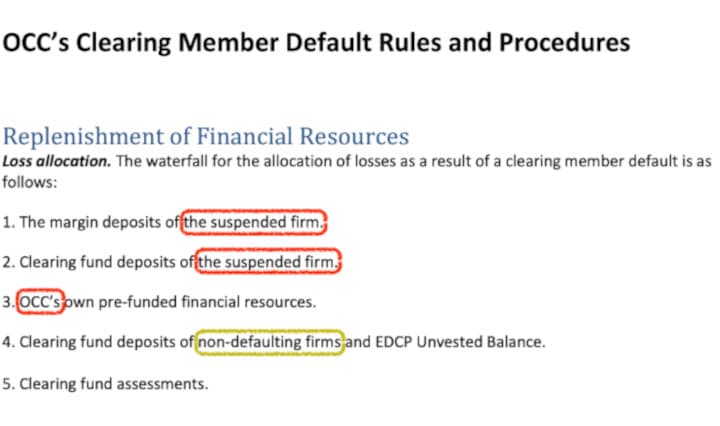A deep dive into the housing data released yesterday and what it can mean for GME! Hint:🚀🚀🚀🚀
TL:DR – I think the Housing market is in a bubble, which could trigger calamity when home values are no longer worth the inflated loans taken out to purchase them, which will begin to poison the Mortgage-Backed Securities they are packaged in causing further balance sheet woes for those trying to keep Marge from calling.
Howdy r/Superstonk, Jellyfish here! I would like to take a dive into some of the housing data that has been released.
Existing-Home Sales Experience Slight Skid of 0.9% in May

The highlights
Ok, so the rate of sales continues to trend downward, but median home prices are up 23.6% year-over-year to an all-time high of $350,300 with May rising at the greatest year-over-year pace since at least 1999, up from $283,500 last year and $340,600 in April.
The next thing I want to draw your attention to is the nifty infographic they released for the month as well:

"If there were a larger pool of inventory to select from – ideally a five- or a six-month supply – then more buyers would be able to purchase properties at an affordable price." Source: https://www.nar.realtor/newsroom/pending-home-sales-slip-10-6-in-february
Months’ supply refers to the number of months it would take for the current inventory of homes on the market to sell given the current sales pace. At these prices, inventory is slowing down:
Previous months’ supply:
February 1.6 months’ supply (Five report records for February were rewritten: most home sales, highest price, lowest inventory, fewest Days on Market and fewest Months Supply of Inventory.)—I think this was the top.

2020 Months' Supply
So, months’ supply is increasing (supply taking longer to move), sales are beginning to decrease (.9%) (demand), and median existing-home price across all housing types hit a record high of $350,300 in May, an increase of 23.6% from the year before (price).
Stated another way:
The current supply is steadying with current inventory not moving at the current prices and is increasing as more homes come online (census bureau has it at ~ 4-8 months in 2020 to build from start to finish, projects started during the pandemic will be coming online), Demand is decreasing, Median Prices has increased to an all-time high.
Revisiting The laws of Supply and Demand:
- The law of demand says that at higher prices, buyers will demand less of an economic good.
- The law of supply says that at higher prices, sellers will supply more of an economic good.

Econ 101, right?
Umm, great, glad to see in a vacuum that the housing market is obeying the laws of supply and demand? How can that be? Surely Jellyfish you have an error in the demand? Or the numbers? Something?
Let’s dig deeper!
Ok, so this isn’t just a one-month blip in sales, and as we saw above with the months’ supply of homes, supply is continuing to hold and come online.
But what about demand, specifically new buyers? The Mortgage Bankers Association (MBA) Builder Application Survey (BAS) data for May 2021 shows mortgage applications for new home purchases decreased 5.9 percent compared from a year ago. Compared to April 2021, applications decreased by 9 percent.

Applications are certainly coming down from the highs of Covid.
However, even while demand for new mortgages drops, loan sizes are still increasing:

https://www.mba.org/2021-press-releases/june/may-new-home-purchase-mortgage-applications-decreased-59-percent
With the conditions of the housing market above, I believe we are entering ‘textbook’ bubble territory.

Source: https://www.investopedia.com/terms/h/housing_bubble.asp
Ok, as we covered above, demand had been through the roof and ate its way through the months’ supply from Mid-2020 to February 2021, but the supply is back on the rise and current stock is taking longer to move. At the same time, demand for new mortgages is decreasing as the supply continues to hold and increase—but prices continue to go up!

Uh-oh...
But what about delinquency rates? This can be a source to the supply...

https://www.mba.org/2021-press-releases/may/mortgage-delinquencies-decrease-in-the-first-quarter-of-2021
On a year-over-year basis, total mortgage delinquencies increased for all loans outstanding. The delinquency rate increased by 141 basis points for conventional loans, increased 498 basis points for FHA loans, and increased 297 basis points for VA loans.
The delinquency rate includes loans that are at least one payment past due but does not include loans in the process of foreclosure. The percentage of loans on which foreclosure actions were started in the first quarter rose by 1 basis point to 0.04 percent. The percentage of loans in the foreclosure process at the end of the first quarter was 0.54 percent, down 2 basis points from the fourth quarter of 2020 and 19 basis points from one year ago. This is the lowest foreclosure inventory rate since the first quarter of 1982.
The seriously delinquent rate, the percentage of loans that are 90 days or more past due or in the process of foreclosure, was 4.70 percent. It decreased by 33 basis points from last quarter and increased by 303 basis points from last year. From the previous quarter, the seriously delinquent rate decreased 34 basis points for conventional loans, decreased 19 basis points for FHA loans, and decreased 37 basis points for VA loans. Compared to a year ago, the seriously delinquent rate increased by 205 basis points for conventional loans, increased 771 basis points for FHA loans, and increased 379 basis points for VA loans.
Then there are those still in or coming out of forbearance with the likely expiration and non-renewal of these Covid rules at the end of the month:

Forbearance details
While it is great to see people come out of forbearance, if I am reading the numbers correctly, more than half of folks coming out are still going to have amounts that still need to be paid back on top of the normal monthly payment. Budgets are already stretched tight, wage growth is decreasing, and inflation is making everything else more expensive.
If these mortgages begin to fail, you can bet that it will have an impact on the Mortgage-Backed Security (MBS) it was packaged into. Enough of that begins to happen, and the balance sheets that were already trying to fight inflation are now caught in a two-front war with inflation and decreasing MBS values. Throw in the fact the Fed is kicking around the idea of tapering MBS purchases (who this dog shit would get offloaded to) and the problem begins to compound!
Tick-Tock...


